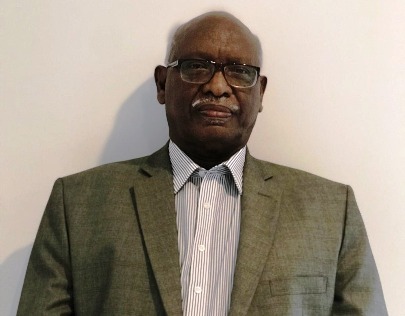Awareness and Overcoming Legacy in the Club of the Elite

Zain Al-Abideen Saleh Abdul Rahman
When discussing issues of war and peace, and examining the perspectives of different groups on how to reach a unified vision that gains consensus on war and solutions — as well as establishing a single strategy that facilitates convincing others of the necessity of a solution based on the proposed idea — it’s essential to recognize that the science of strategy remains confined to military studies. Its migration to the political arena and political discourse, which still lacks sufficient knowledge of this transferred science, highlights this gap. While strategy is the backbone of military sciences, around which other fields revolve, its weak application in the political field stems from the intellectual and theoretical decline within political institutions — a decline that modern societies have long surpassed in their contemporary historical evolution.
The high level of awareness that emerged — and still exists — among the youth of the December Revolution is due to the fact that, throughout the three decades of the Salvation Regime, they refused to heed the calls of political parties or respond to their mobilization efforts. They were convinced that there was no real ideological difference between the rulers and the opposition regarding the issue of “democracy” that they both claimed to uphold — both sides were simply seeking power. This is why the revolution erupted from outside the confines of the political parties. Even the idea of “cumulative struggle” that party leaders try to claim as their contribution to the revolution is known to be a false narrative with no grounding in reality.
In the early 1990s, when the “National Democratic Alliance” was formed and all political forces, following the 1995 Asmara Conference on Critical Issues, decided to take up arms against the Salvation Regime in response to President Bashir’s 1995 speech in Port Sudan — where he said, “If you want power, take up arms” — the political parties (the Democratic Unionist Party, the Umma Party, the Communist Party, and the Sudanese Allied Forces) called on their members to gather in Asmara and take up arms to open the eastern front alongside the Sudan People’s Liberation Movement (SPLM) in the southern front. Surprisingly, the total number of people who responded to this call across all these parties did not exceed 700. This forced the SPLM to transfer 3,000 of its fighters to the eastern front. At the time, I visited all the camps in Eritrea and the party offices in Asmara. The parties’ failure to mobilize their membership convinced John Garang that these political forces were too weak to realize his idea of an “armed uprising,” which he had begun to promote as a revolutionary slogan for mobilization.
I asked several political leaders at the time about the reluctance of people to respond to the call. Dr. Farouk Mohamed Ibrahim and Amin Mekki were among the first I spoke to, and both shared the same belief: that the political parties were in a state of weakness, which is why they proposed forming several civil society organizations to support the political process. Mohamed Hassan Abdullah Yassin stated that young people held a negative view of the old traditional parties, which they blamed for the loss of past democratic experiments. Dr. Omar Nour Al-Daim told me in an interview in Asmara: “We must admit that the performance of the political parties during the third democratic period was weak, and most young people were dissatisfied with it. Therefore, we must be patient with them because there is no alternative to political parties in the democratic process.”
All the political changes happening globally in politics, science, and thought have not prompted political mindsets to advance even slightly. They remain stuck in the culture of the Cold War, which ended over three decades ago.
It is as if Sudanese intellectuals departed with Muawiya Nur, whom Al-Sawi made a symbol of enlightenment in Sudan. Interestingly, intellectuals who were once members of leftist parties but left them years ago — whether nationalist or Marxist — cannot seem to think outside of their old frameworks. They cannot step beyond these ideological walls for fear of being accused of betrayal or siding with the regime. The “infiltrator” phase ended with the war, but the intelligence and security apparatus will regain its strength, and the term “infiltrator” will resurface, especially for those who previously used the acronym “M N.”
This explains why these figures remain trapped in a closed circle centered on “Islamists and remnants of the old regime.” If they fail to mention them, they risk losing their status among the “progressives.” The irony is that they raise the banner of democracy while lacking its true culture. These heavy ideological legacies from leftist traditions stifle independent thought and prevent them from analyzing reality differently from their former comrades. Fear of being labeled or accused keeps them tethered to old patterns of thinking. Why, then, did they leave their political institutions if not to think freely?
All Sudanese political parties — whether on the right or left — suffer from “intellectual and organizational” problems. They need introspection and a change in leadership to enable genuine reform and allow younger generations to rise, replacing the historically entrenched leadership that has become addicted to failure. These veteran leaders now focus only on maintaining their positions and recycling outdated political terminology and strategies that modern societies have outgrown. Instead of engaging in self-pity and nostalgia, former party members should critically reassess their past ideas to foster a more objective discourse — even recognizing that “Islamists” are part of the political crisis alongside other forces. This approach would lend credibility to their arguments and expand their intellectual framework.
The darkness they live in prevents them from thinking correctly because they remain captive to the fear of surveillance and judgment. May God grant them and us guidance and wisdom.



